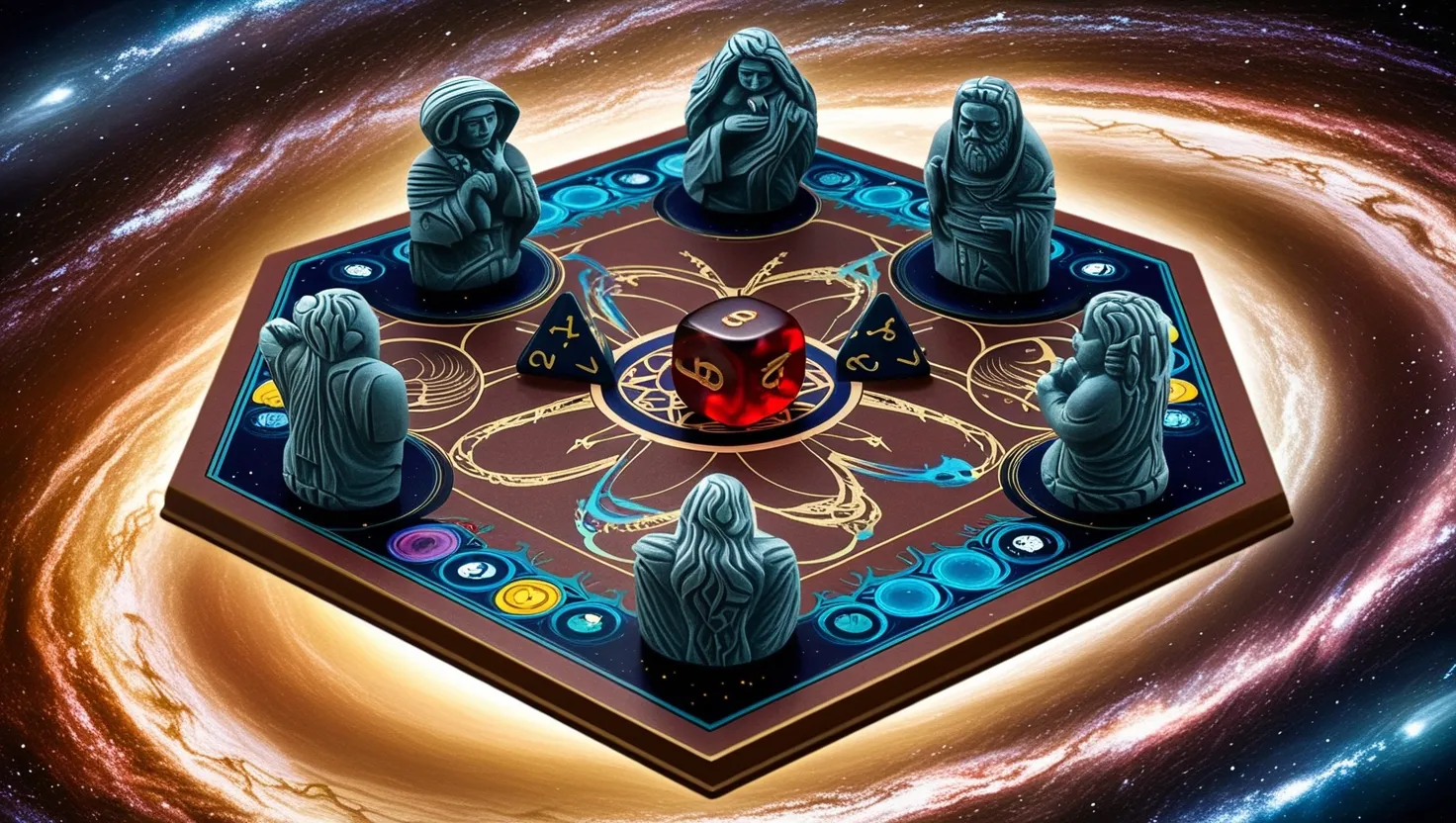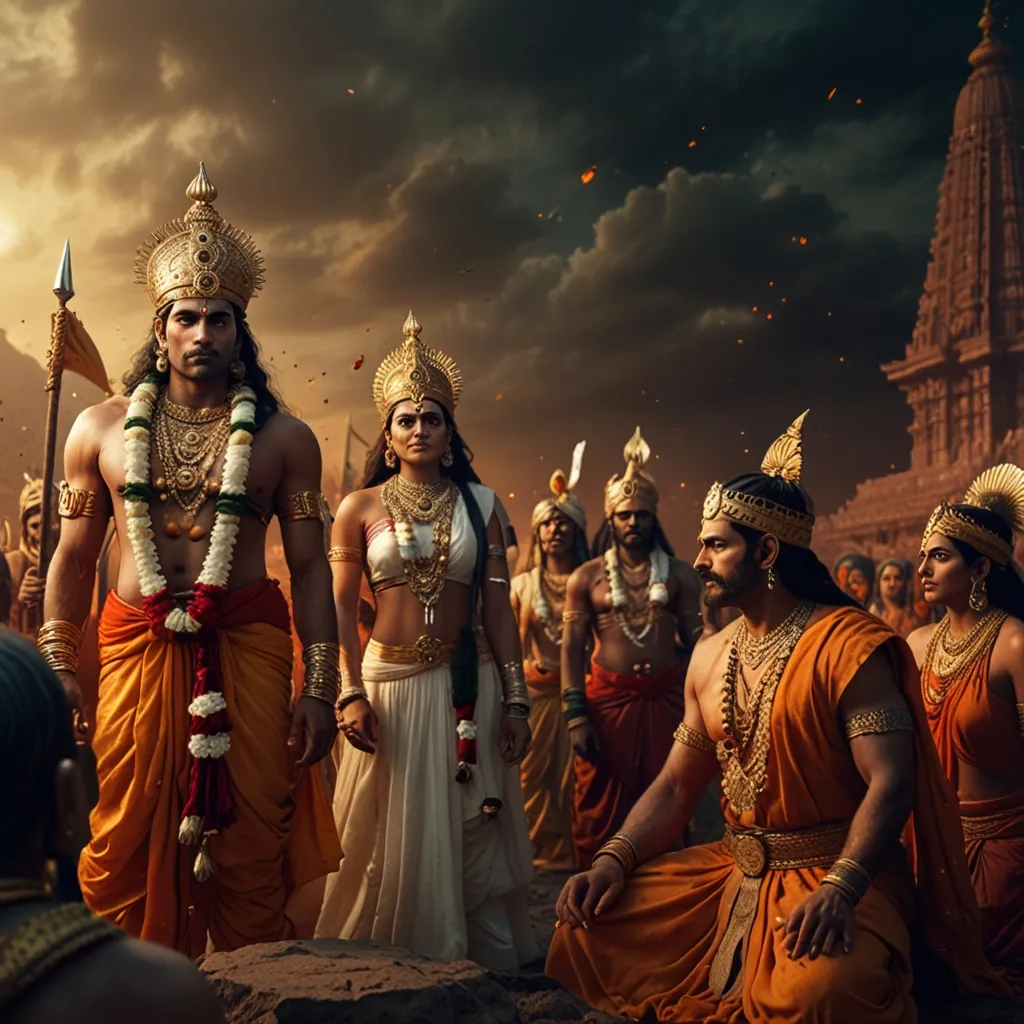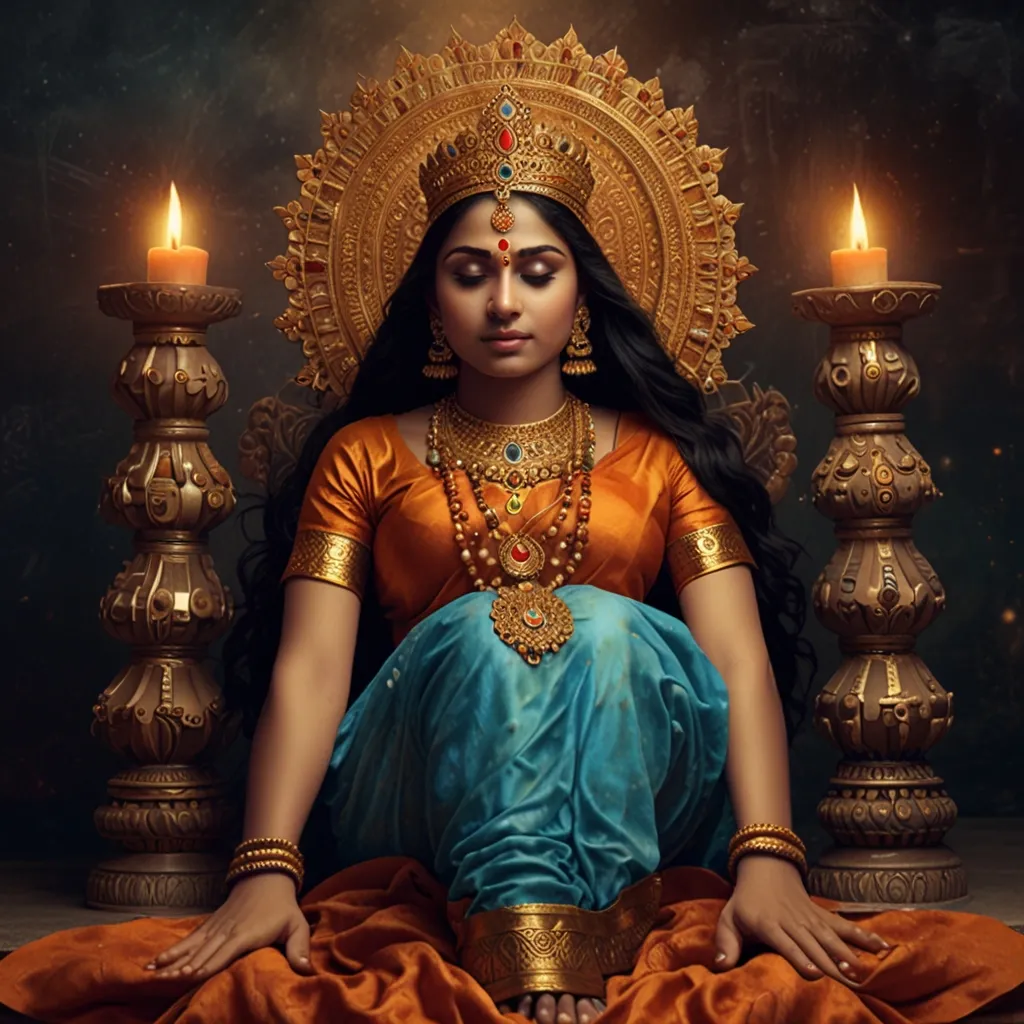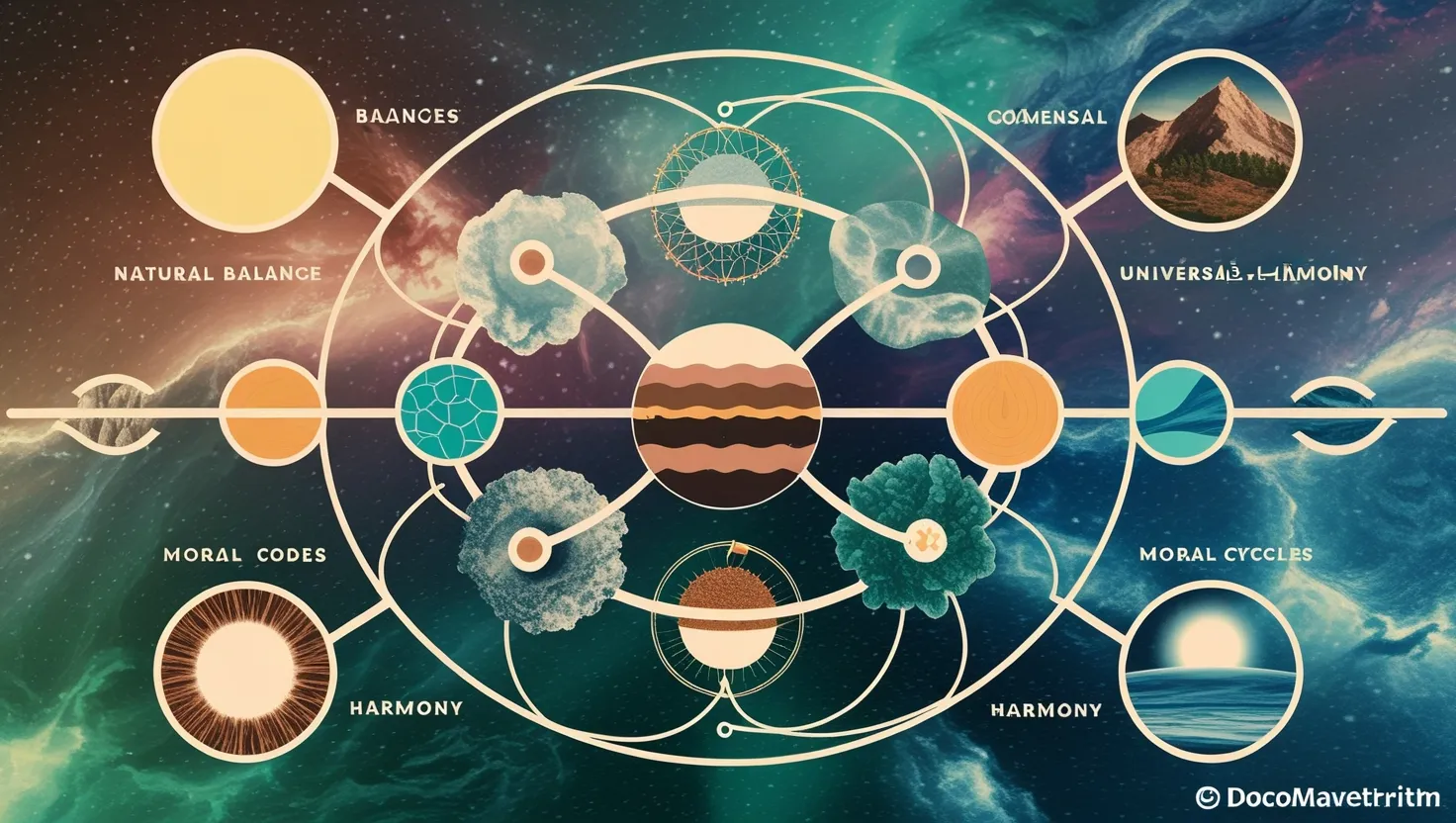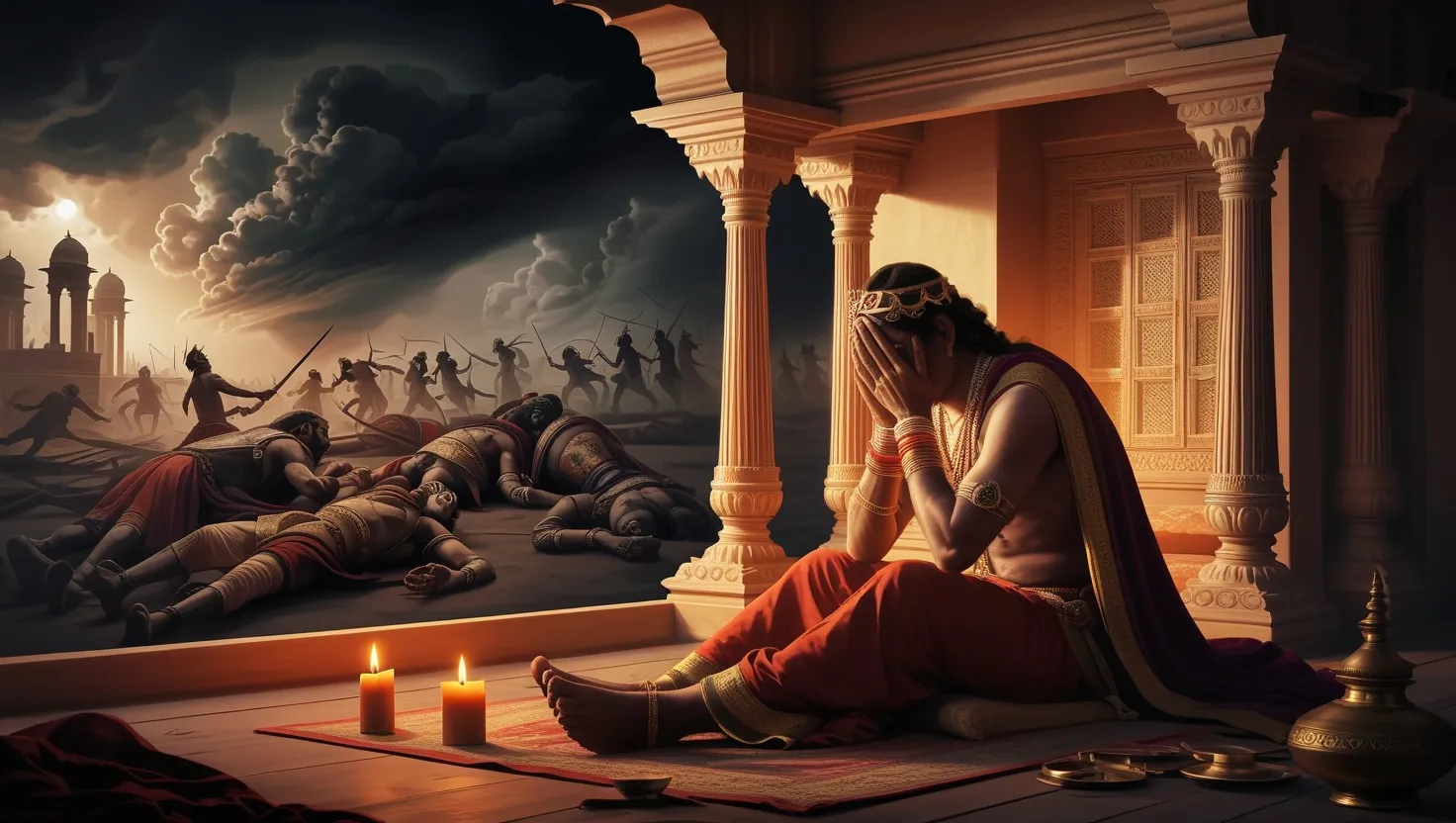In the sprawling epic of the Mahabharata, the game of dice stands as a poignant and complex metaphor that delves into the very fabric of human existence. This pivotal event is more than just a game; it is a reflection of life’s unpredictability, the interplay between fate and choice, and the profound consequences of our actions.
When Yudhishthira, the eldest of the Pandavas, agrees to play a game of dice against Shakuni, he steps into a realm where chance and deceit intertwine. This is not merely a contest of luck but a symbolic battle between dharma (righteous duty) and adharma (unrighteousness). Yudhishthira’s decision to participate, despite the warnings and the known risks, speaks to a fundamental human tendency: the willingness to gamble with fate.
“As is the microcosm, so is the macrocosm,” an ancient Hindu proverb suggests. The dice game is a microcosm of life itself, where the roll of the dice can change fortunes in an instant. Shakuni’s loaded dice introduce an element of unfairness, reflecting the often unseen forces that shape our lives. These forces can be as capricious as fate, beyond our control or comprehension. This aspect of the story prompts us to reflect on how we navigate through circumstances that seem stacked against us.
The game progresses with escalating stakes, mirroring the real-life consequences of poor decisions. Yudhishthira’s relentless pursuit of winning back his losses, even after he has lost his kingdom, his brothers, and eventually his wife Draupadi, illustrates a pattern all too familiar in addictive behaviors. It is a cautionary tale about the dangers of chasing losses and the importance of knowing when to walk away.
“Dharma is so called because it holds everything together,” says the Mahabharata. Yet, during the dice game, the very fabric of dharma seems to unravel. Draupadi’s humiliation in the court of Hastinapura is a stark reminder of how our actions can have far-reaching consequences, affecting not just ourselves but those around us. Her poignant question about the legality of her being staked challenges the foundations of societal norms and personal honor. It is a moment that forces us to question what is right and what is wrong in the face of overwhelming adversity.
The game of dice also raises profound questions about free will and moral responsibility. Was Yudhishthira’s fate sealed from the moment he agreed to play, or did he have the power to change his course? This dilemma is encapsulated in the words of the Mahabharata: “Fate is the inevitable, but it is also what we make of it.” It suggests that while fate may set the stage, our choices determine the final act.
In this light, the game of dice becomes a powerful allegory for life’s journey. It teaches us about the importance of decision-making, risk assessment, and the delicate balance between our desires and our responsibilities. It invites us to ponder how we cope with the unforeseen outcomes of our choices and how we find the strength to move forward in the face of adversity.
As we reflect on this ancient tale, we are reminded that the consequences of our actions are not isolated events but part of a larger web of cause and effect. The dice game in the Mahabharata is a timeless lesson, urging us to be mindful of our choices and to consider the broader implications of our actions.
“Life is a game of dice,” someone once said. “You throw the dice, and the universe responds.” This response can be cruel or kind, but it is always a reflection of our choices. The Mahabharata’s game of dice serves as a mirror, reflecting back to us the complexities of human nature and the intricate dance between fate and free will. It challenges us to be more thoughtful, more responsible, and more aware of the consequences that follow every roll of the dice in our own lives.
In the end, the game of dice is not just a story from an ancient epic; it is a reflection of our own struggles, our own triumphs, and our own failures. It reminds us that life is a continuous game of chance and choice, where every decision we make shapes the world around us and the world within us. As we navigate this complex landscape, we would do well to remember the lessons of the Mahabharata’s dice game, for in its ancient wisdom lies a profound truth about the human condition.
